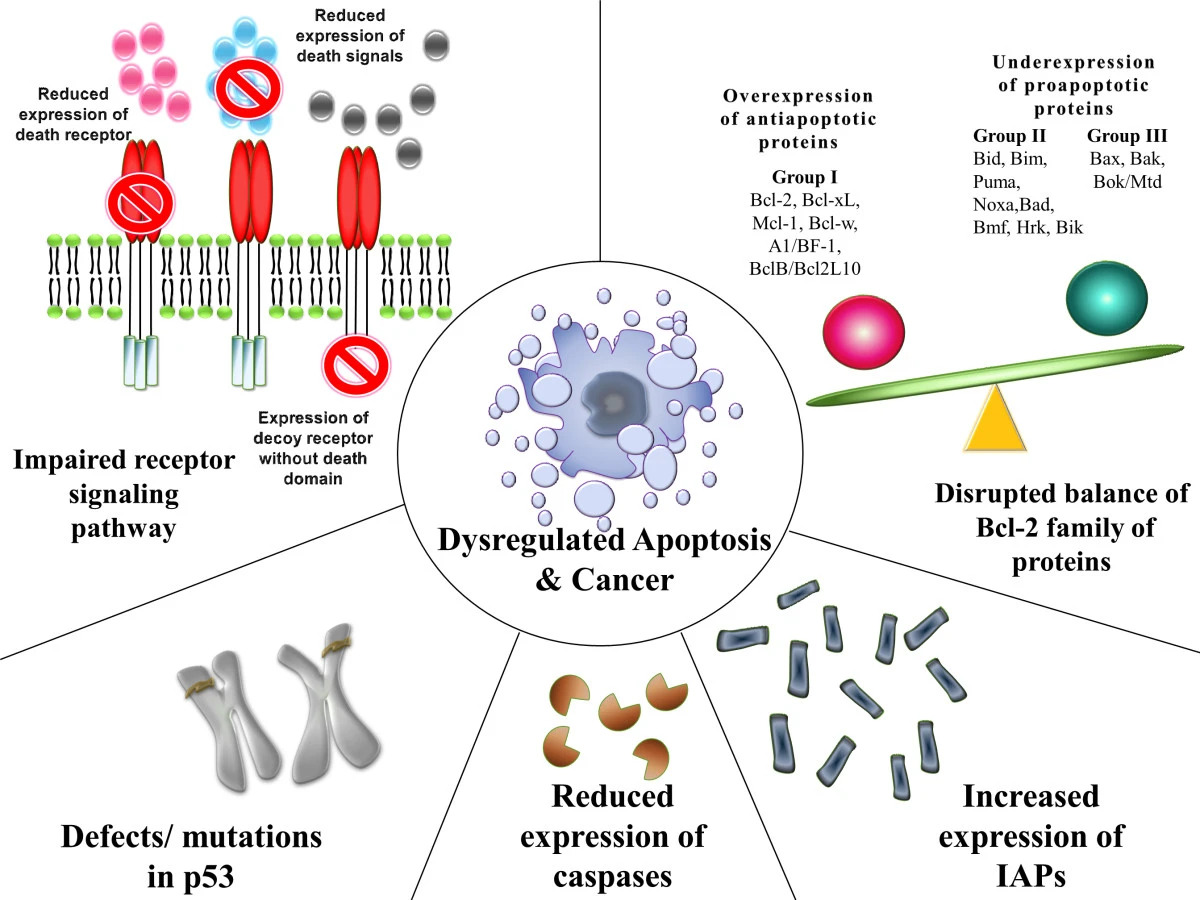Playlist
Show Playlist
Hide Playlist
Neoplasia: Definitions
-
Slides CP Neoplasia Definitions.pdf
-
Reference List Pathology.pdf
-
Download Lecture Overview
00:00 Hi. Welcome to the wild world of cancer. In the next series of talks, you and I are going to spend a lot of time thinking about how cancer starts, how cancer causes pathology, and potential pathways by which we can impact and treat malignancy. We're going to start off though by trying to understand exactly what neoplasia is, what cancer is, and we're going to go over some definitions. So, over the course of multiple talks, this is kind of where we're going to be going. We're going to be doing definitions here, we will spend some time talking about cell cycle because it is the deregulation of cell cycle that allows cancer cells to proliferate. We're going to talk about the genetic alterations that occur to make a cell malignant, why a good cell goes bad. We're going to talk about how those genetic alterations can occur, and then we're going to deal more into the fact that tumors are not a monolithic clonal population of cells. As they grow, they acquire more and more and more mutations so there is a significant heterogeneity in term of populations. We'll also talk a bit about cancer stem cells. But for right now, let's make sure we're on the same page so that we understand exactly what neoplasia or what cancer is. So let's talk about what really is neoplasia? Neoplasia is literally a new growth, neoplasia. And new growth does not equate to cancer. So on the left hand side are my kids on vacation 1 year they are new growths but they are not cancer, clearly. On the right hand side is new growth. This has been introduced by increasing numbers of rings over a period of time to extend the neck but it's not cancer, it is a neoplasia, it's new growth to make that happen. So, a definition by Sir Rupert Willis in the 1930s says, getting this closer to what we're trying to get to, "A neoplasia is an abnormal mass of tissue, the growth of which exceeds and is uncoordinated with that of the normal tissues and persists in the same excessive manner after cessation of the stimulus which evoked the change. That's getting closer to what we're talking about. It is a growth of tissue which does not play by the normal rules and doesn't stop once a stimulus for growth begins. What's being shown in the bottom panel are actually still benign new growths. They are proliferations of epithelial cells within the colon giving rise to polyps. Now they are benign, they have not acquired other mutations but they are continuing to grow even though there is not excessive outside stimuli to make that happen. So again, neoplasm is not necessarily cancer. Okay I've been telling you what they're not, they are also tumors malignancy is not normal wound healing, that is growth. We are actually seeing the new growth of epithelium to restore the normal function in a healing wound. It's not just hyperplasia, not increased number of cells. It's not larger cells, it's not hypertrophy. It's not pregnancy, it's not a new growth in that way, and it's not even a change in the phenotype of cells because we can have normal cells that under certain circumstances. What is being shown here is say normal respiratory epithelium that under the influence of cigarette smoke becomes squamous. So we've changed the phenotype of these cells, but that still is not malignancy. So, cancer is going to be a growth disorder that's characterized and this is key, by genetic alterations. So that lead to the loss of the normal control mechanisms that normally regulates cell growth, morphogenesis, and differentiation. So in this piece of colon that we're looking at, we have a couple polyps that are benign, that are hyperplasia of epithelium, but they have not acquired the genetic alterations. They are not mutated that leads to the complete loss of normal control. And I want to emphasize that that genetic alteration is a key feature of malignancy, of cancer. It is the genetic instability that is non-lethal. If you have so many mutations that the cell dies, that's not going to be cancer either. It is going to be genetic instability leading to mutations that lead to uncoordinated growth that doesn't kill the cell.
About the Lecture
The lecture Neoplasia: Definitions by Richard Mitchell, MD, PhD is from the course Neoplasia.
Included Quiz Questions
What is one way of defining neoplasia?
- New growth
- Hyperplasia
- Hypertrophy
- Pregnancy
- Mutation
What changes characterize malignancy?
- Genetic alterations
- Genetic stability
- Cellular apoptosis
- DNA repair
- Reverse transcription
Which of the following can metastasize?
- Invasive ductal carcinoma
- Ductal carcinoma in situ
- Polyp
- Benign neoplasm
- Hypertrophic cells
Customer reviews
5,0 of 5 stars
| 5 Stars |
|
5 |
| 4 Stars |
|
0 |
| 3 Stars |
|
0 |
| 2 Stars |
|
0 |
| 1 Star |
|
0 |




